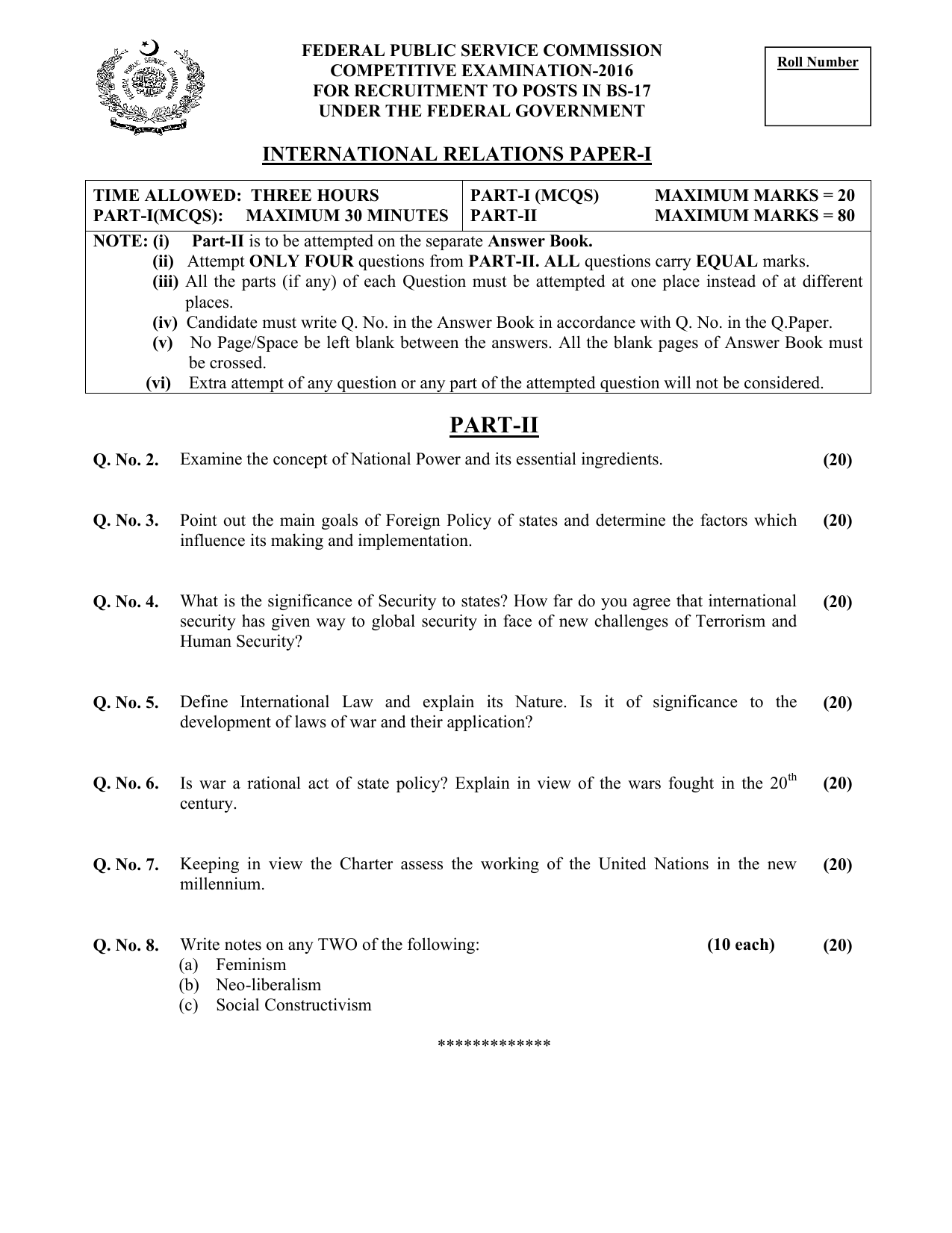Q.4 Discuss the moral imperatives of “Indian Foreign Policy” with the contending spirit of “Panchsheel” and evaluate how much it helps to strengthen diplomatic objectives of the country’s foreign policy? 2016

Indian foreign policy has been guided by a set of moral imperatives that reflect the country’s commitment to peace, justice, and cooperation among nations. One of the key principles of India’s foreign policy is the Panchsheel, which embodies the spirit of peaceful coexistence and mutual respect among nations.
The Panchsheel, also known as the Five Principles of Peaceful Coexistence, was first articulated in 1954 by Indian Prime Minister Jawaharlal Nehru and Chinese Premier Zhou Enlai. The principles include mutual respect for each other’s territorial integrity and sovereignty, non-aggression, non-interference in each other’s internal affairs, equality and mutual benefit, and peaceful coexistence.
The Panchsheel has been an important guiding principle of India’s foreign policy, as it reflects the country’s commitment to promoting peace and stability in the world. It has been used to strengthen diplomatic objectives in several ways, including:
- Promoting Peaceful Coexistence: The Panchsheel embodies the spirit of peaceful coexistence and mutual respect among nations. India has used this principle to promote peace and stability in the world, including in regions such as South Asia and the Middle East.
- Building Strong Bilateral Relations: The Panchsheel has been used to build strong bilateral relations between India and other countries. India has used this principle to develop closer ties with its neighbors, including China, Nepal, and Bangladesh.
- Resolving Disputes: The Panchsheel has been used to resolve disputes between India and other countries. For example, India has used this principle to resolve border disputes with China and to promote peace and stability in the Kashmir region.
- Promoting Economic Cooperation: The Panchsheel has also been used to promote economic cooperation between India and other countries. India has used this principle to promote trade and investment with its neighbors, as well as to promote regional economic integration through initiatives such as the South Asian Association for Regional Cooperation (SAARC).
However, it is important to note that the effectiveness of the Panchsheel as a guiding principle of India’s foreign policy has been debated. Some critics argue that the Panchsheel is too idealistic and does not reflect the realities of the international system, which is characterized by power politics and competition among nations.
In conclusion, the Panchsheel embodies the moral imperatives of India’s foreign policy and has been an important guiding principle in strengthening the country’s diplomatic objectives. While its effectiveness has been debated, the spirit of peaceful coexistence and mutual respect among nations remains an important aspect of India’s foreign policy.